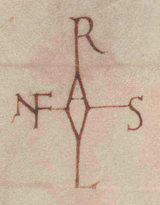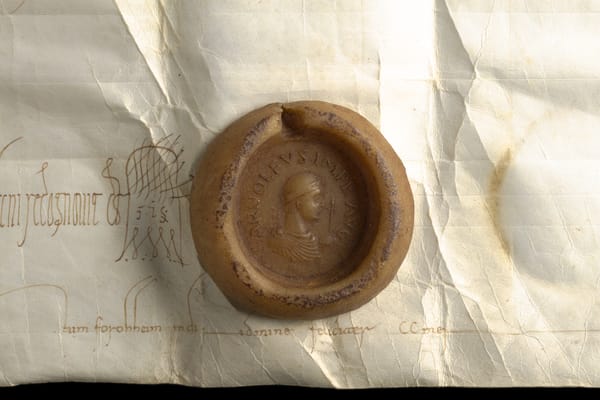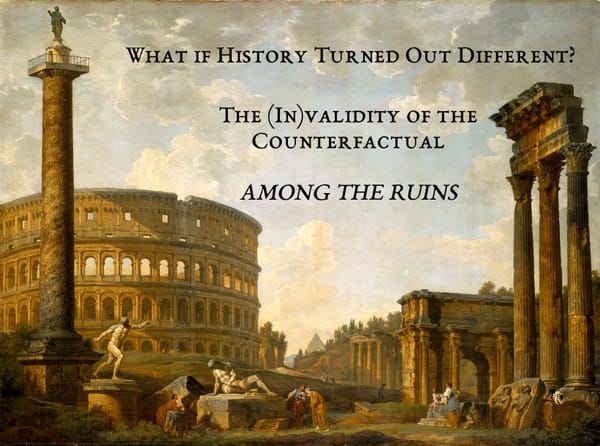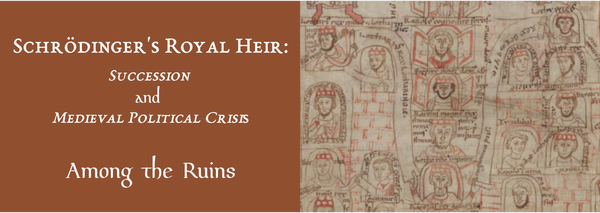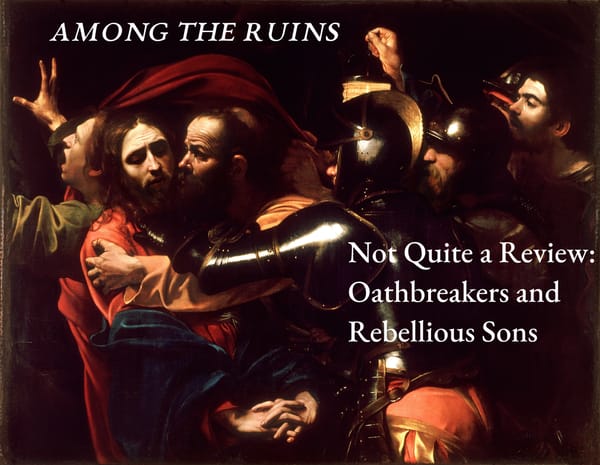Finding my Ozymandias
How do historians decide what to study?
This week’s post is a bit more personal than normal as I am currently writing fellowship applications, and beginning to look towards the end of the dissertation, so am increasingly busy. I thought it would be a good idea to write about my own process of choosing this topic and how my thinking has shifted over the years. Most historical topics cover obscure figures, perhaps not to experts, but to the general public. I am often asked why I choose to study Arnulf of Carinthia as the topic of my dissertation, by academic and non-academic people alike. My answer is different now than when I first sent out PhD applications in the fall of 2015. Rarely do we see why a historian was interested in a topic, or what inspired them to write about it for a long period of time.
When I was at the University of Cambridge in 2015 my thesis was about the use of palaces by Carolingian rulers. In particular I was curious what role the palaces served when the king wasn’t around and the relationship between political power and geography. This idea came not from any historian I read, but my experience working at DOJ-adjacent office in undergrad where I was in charge of compiling survey data of public defenders. A common issue that appeared in this data was that the offices/locations of the public defender was far away from the jails where their potential clients were held, so even though there is a constitutional guarantee of public defense, the actual geography of the US makes this somewhat uneven. I was thus interested in this question: how does physical space impact the practice of politics? Even today this lesson has led me to pay particular attention to the movement of the ruler and where he is granting charters, etc.
Yet also in the course of this project at Cambridge I came across a king named Arnulf of Carinthia, a weird name for a Carolingian dynasty composed of Charleses, Louises, and Carlomans. I was intrigued because despite looking around, I could find no book about him in either English or German. A good rule of thumb is that the Germans have probably written a book about it at some point, so there being no book on Arnulf struck me as odd. Why didn’t anyone care about this ruler? If you asked why I proposed a dissertation on Arnulf I would have answered quite simply: there is no book about him.1 It made me immensely curious. Was this king so irrelevant that no one had bothered to write about him? I needed to know why no one seemed terribly interested in him. There were references to him in various places, notably in Simon MacLean’s book on Charles the Fat, the book which partially inspired me to become an early medieval historian in the first place. What was missing however, was a similar type of work for the period after 887. Scholars tended to either end with 887, or they would jump right to the tenth century. Sometimes Arnulf showed up as a bit player, either an epilogue to the Carolingians or a prologue to the Ottonians. Ok then, he must not be very important, right?
Now, flash forward to 2024 and I have a much deeper appreciation for Arnulf. As I started reading the primary sources and delving deeper I realized that Arnulf is important, but for various reasons has been downplayed by scholars. Much of the early work was done in a period when empire was valued, and Arnulf was thus seen as the one who ended the Carolingian empire, which had revived learning and “strong” polities in the “Dark Ages.” Even though modern historians have drastically revised this impression of the Carolingian world, interpretations of Arnulf largely remained crystallized in this mode as someone defined by his illegitimacy and not part of the Carolingian world proper. I, obviously, don’t agree with this presentation and that is partially what my dissertation is about. But at the same time I also just think Arnulf’s reign is really fascinating. Historians can be a bit of a boring bunch, and part of that is necessary to create high quality scholarship. You can’t take the sources at face value and you need to sift through tons of information to make a compelling argument. Often this doesn’t make for the most entertaining read unless you are well invested in the topic. This doesn’t mean we can’t also celebrate how dramatic, how interesting, these events were.
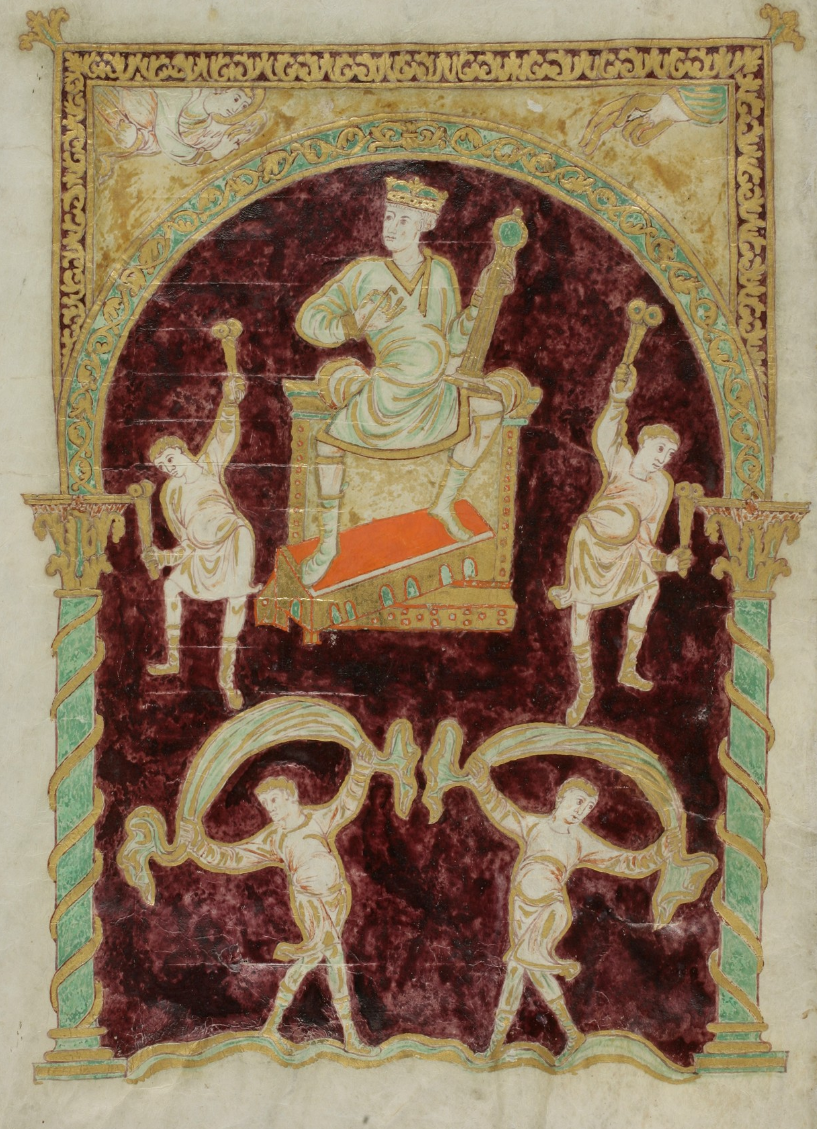
Arnulf’s life was dramatic! He starts off as the illegitimate son of a king and becomes emperor! There are feuds, wars, accusations that he was poisoned! We can find recurring “characters” that return in later seasons. Arbo, a seemingly important frontier magnate, had opposed Arnulf during the so-called Wilhelminer War in the 880s. At the end of Arnulf’s life, in 899, Arbo and his son Isanrich stirred up a revolt along the frontier causing Arnulf to travel down the Danube and besiege Isanrich because the king was so ill he could no longer ride a horse. Now that is vengeance! More than that, Arnulf is trying to fit into a new world. His family had been the dominant dynasty for almost 150 years and now was one of several, how do you deal with that? Does his family heritage matter? These are interesting questions that get to the heart of the upheaval of this period. It is above all about the relationship of politics and the past, tradition vs innovation, and the mechanics of political authority. Arnulf mostly relied on Carolingian tools because they continued to work, but also because being a Carolingian continued to matter to the elites who supported his reign. This was a moment of crisis and political change, and Arnulf gives us a good window into how that was processed at a high level. Maybe I’m the only one who finds that cool, but I don’t think so.
Percy Bysshe Shelley’ poem “Ozymandias” poem contains the infamous line “Look on my works, ye Mighty, and despair” but the poem is really about the onslaught of time that will eventually win out and erase even the grandest and most powerful. No matter how big something seems in the present, time has a way of sanding it down and covering it up. Yet these historical people mattered, whether a king or an unfree craftsperson2, and any good historical research needs to proceed from this assumption: that people matter and their histories matter. Otherwise the past holds meaning only in so far as it impacts the present. The past, however, is not just a long march to the present, but a kaleidoscope of possibilities. Part of why I do this is to recover these obscure stories and return them to light. In researching Arnulf I have found my own Ozymandias, sanded down by time and appearing dimly to us in the present, but important.
Thanks for reading Among the Ruins! Subscribe for free to receive new posts and support my work.

